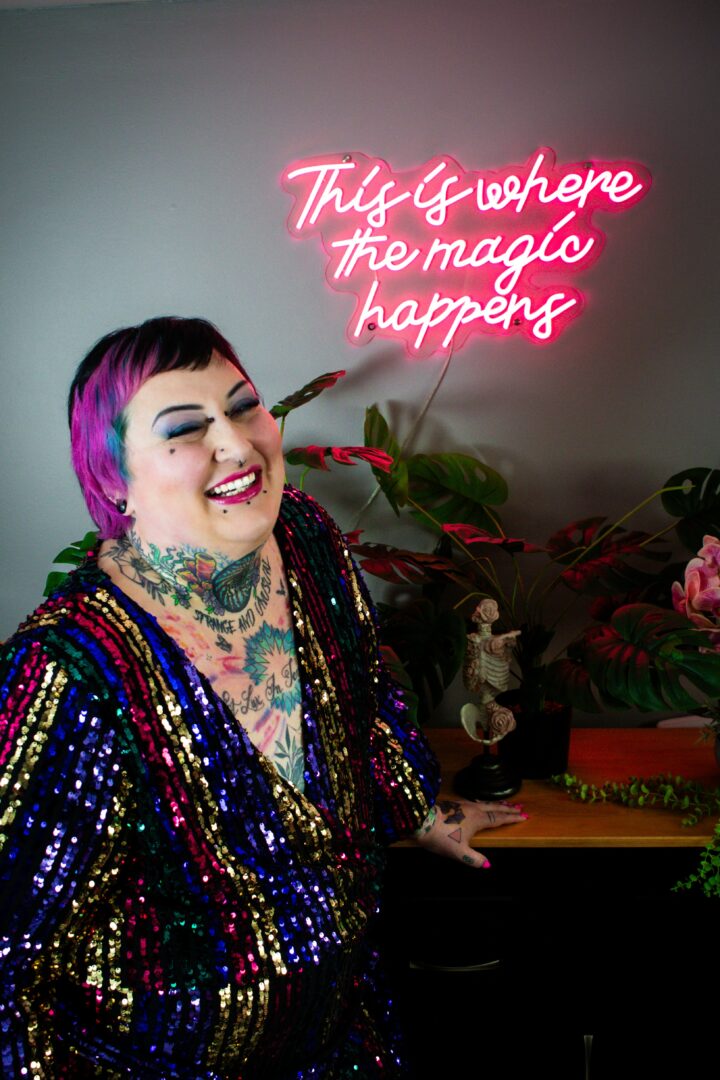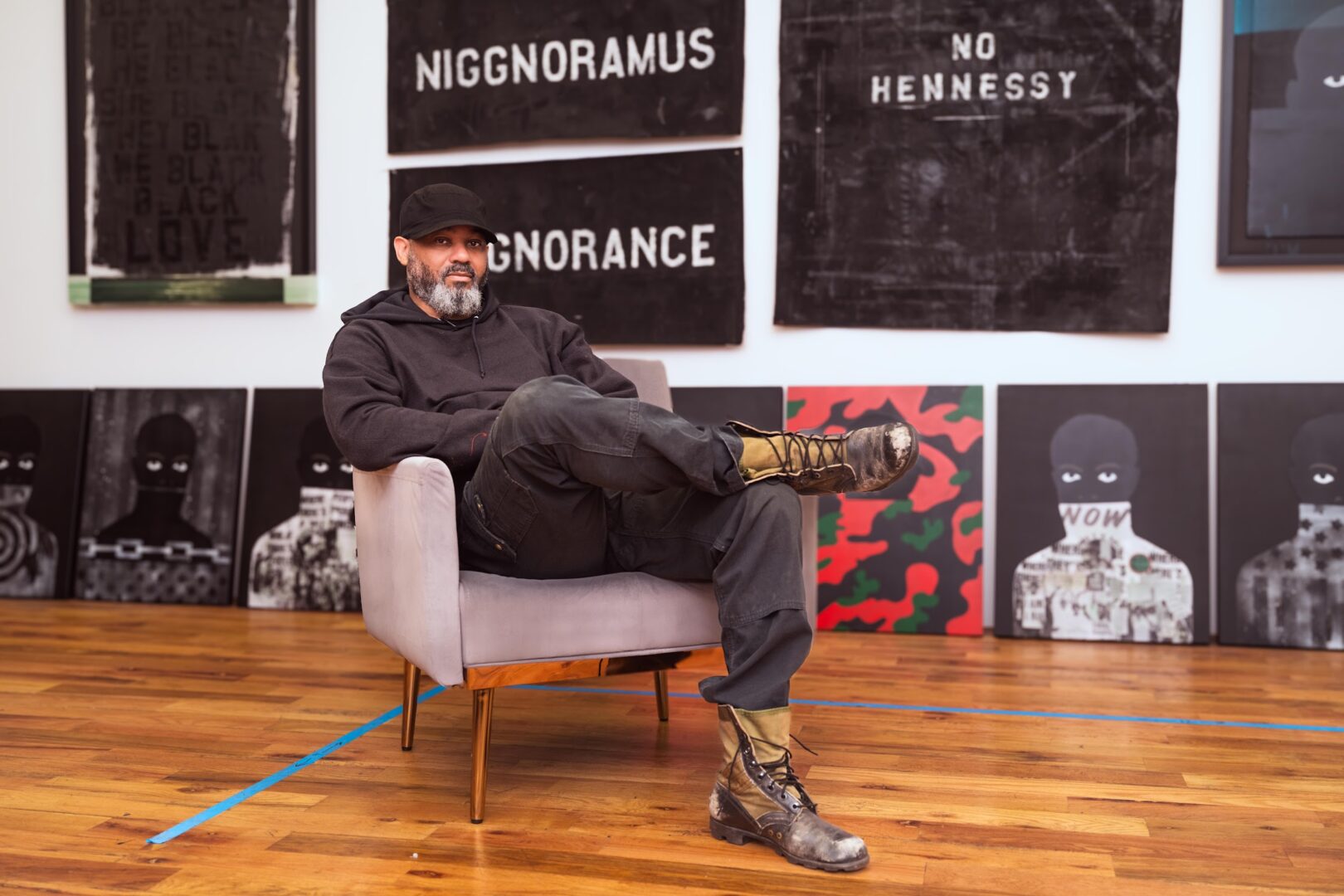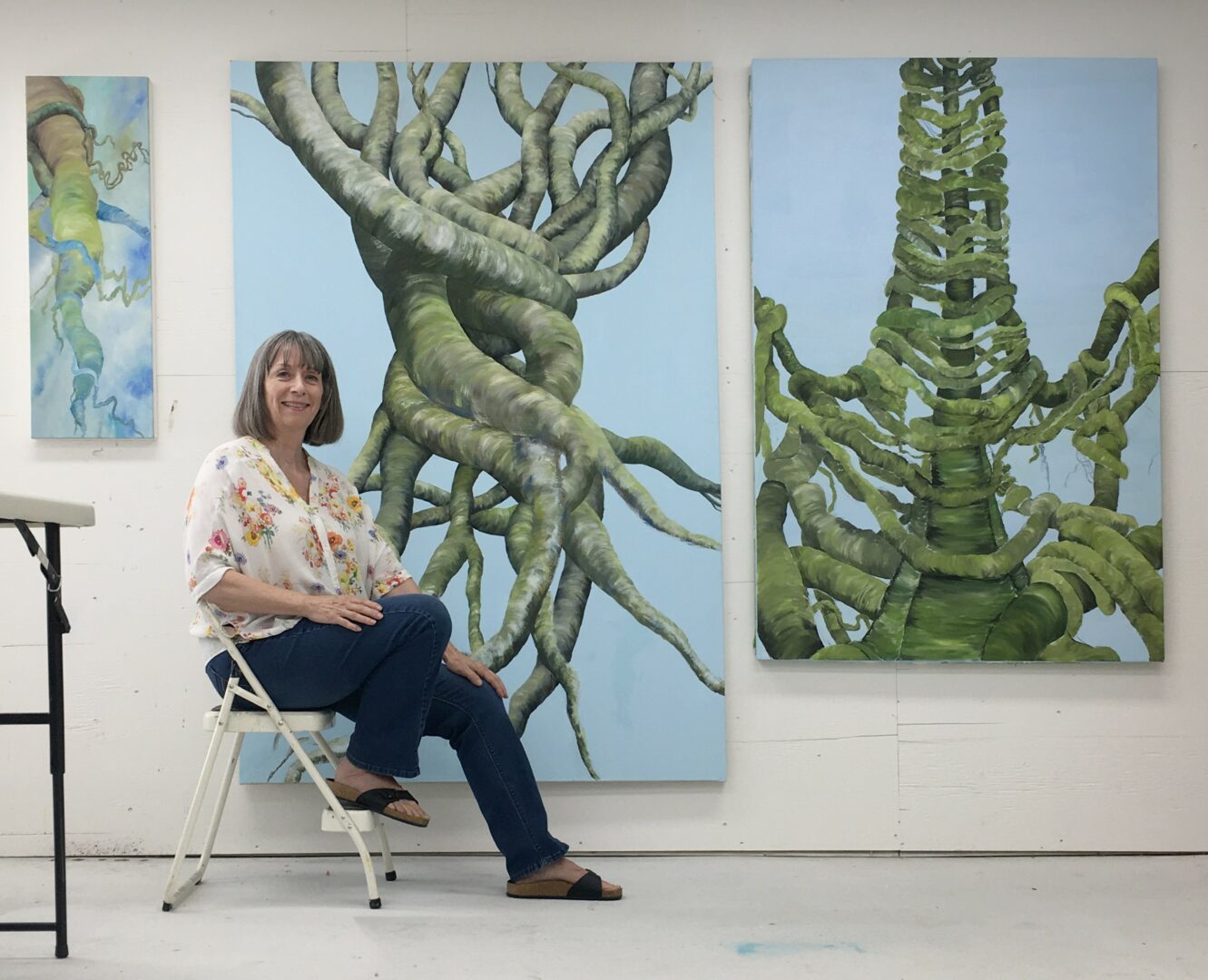We recently had the chance to connect with Wednesdae Reim Ifrach and have shared our conversation below.
Wednesdae, we’re thrilled to have you with us today. Before we jump into your intro and the heart of the interview, let’s start with a bit of an ice breaker: Have any recent moments made you laugh or feel proud?
Over the past year, I have been writing a book titled “Queer Expressions: Expressive Art and Somatic Therapy Practices for Healing Body Trauma” (through North Atlantic Books). This has been a long-held dream of mine, and I am deeply passionate about it. Within that process, I began painting more regularly and writing more poetry. While writing this book, I submitted artwork and poetry, including some poetry manuscripts, to publishers I had always wanted to work with. Just this week, I signed a contract for a poetry chapbook, “Skeletons, Sequins, and Kin” (through Finishing Line Press). I honestly laughed both times they made me the offer; it wasn’t a humorous laugh, but a laugh of joy and shock that these things could be happening to me. I usually don’t talk about my projects, but this time around, I am because I couldn’t be prouder to bring healing into the world in so many creative ways.
Can you briefly introduce yourself and share what makes you or your brand unique?
Hi, I’m Wednesdae Reim Ifrach (they/them) — an art therapist, counselor, educator, and researcher deeply committed to queer-affirming, trauma-informed, and body-liberation-centered care. My work sits at the intersection of mental health, creative expression, and social justice, and I’m passionate about using art and embodiment as tools for healing and community connection.
I co-own and operate Rainbow Recovery, a collective providing clinical supervision, consultations, training, workshops, and expressive art therapy across Connecticut and Pennsylvania. Our mission is to foster inclusive, harm-reduction-oriented spaces where individuals can engage in recovery and self-discovery free from shame.
In addition to my clinical work, I serve as a full-time faculty member at Moravian University, teaching in the School of Behavioral and Community Health. I also sit on the boards of GLMA: Health Professionals Advancing LGBTQ+ Equality as the HPiT co-chair and Prism Counseling and Advocacy, helping to advance equitable, affirming care across disciplines.
Creativity and activism inform everything I do. My upcoming book, Queer Expressions: Expressive Art and Somatic Therapy Practices for Healing Body Trauma (North Atlantic Books, 2026), and poetry collections — Skeletons, Sequin, and Kin explore how art can be a radical act of reclamation. My current research, Inked Identity, examines tattoos as a form of body reclamation, gender affirmation, and healing.
Through Wednesdae.org, I share my evolving work in expressive art therapy, research, and writing — bridging academia, lived experience, and creative practice. At the heart of all my work is a belief that healing is creative, collective, and unapologetically queer.
Appreciate your sharing that. Let’s talk about your life, growing up and some of topics and learnings around that. What part of you has served its purpose and must now be released?
The part of me that worried about what people thought and how I was perceived. I used to worry when I knew people were nice to my face but had negative opinions of me. However, I’ve learned that I’m not for everyone, and everyone isn’t for me. I think learning to let go of other people’s opinions and preconceived notions is how we free ourselves to be our most authentic selves. Without that I don’t think I would be the person I am right now in this moment and I like the person I am.
Was there ever a time you almost gave up?
I am in the process of getting my PhD, and multiple times I wanted to give up and felt I couldn’t do it. The process is overwhelming, and the work is hard. Balancing that, family, working as a professor full-time, and taking on so many creative projects made me feel like I was incapable of doing it all. I had to sit back and ask myself, “If I give this up, what will I feel like later on in life?” The whole point of going back to school was the hope that a PhD would help me advocate for my clients, and I couldn’t give up on them or that dream.
Alright, so if you are open to it, let’s explore some philosophical questions that touch on your values and worldview. Is the public version of you the real you?
For the most part, it is. I don’t let people see the part of me that is a Zizi (aunt), as I don’t want my nephew in the public eye in any way, and I don’t show people my role as someone helping my dad take care of my mom. Those parts feel personal and not for others to witness or consume. I’d like to think I’ve been publicly honest about my recovery and my transition, which already feel personal enough, and they are part of the real me.
Before we go, we’d love to hear your thoughts on some longer-run, legacy type questions. When do you feel most at peace?
I feel most at peace when I am writing and making art. These are the moments where I can express myself and experience a deeper connection to myself. In art and poetry, I can sink into what it feels like to be truly at peace, where the flow of creativity becomes the center of my being.
Contact Info:
- Website: https://www.wednesdae.org
- Instagram: @Queer.Art_Therapist
- Facebook: https://www.facebook.com/61576196679839
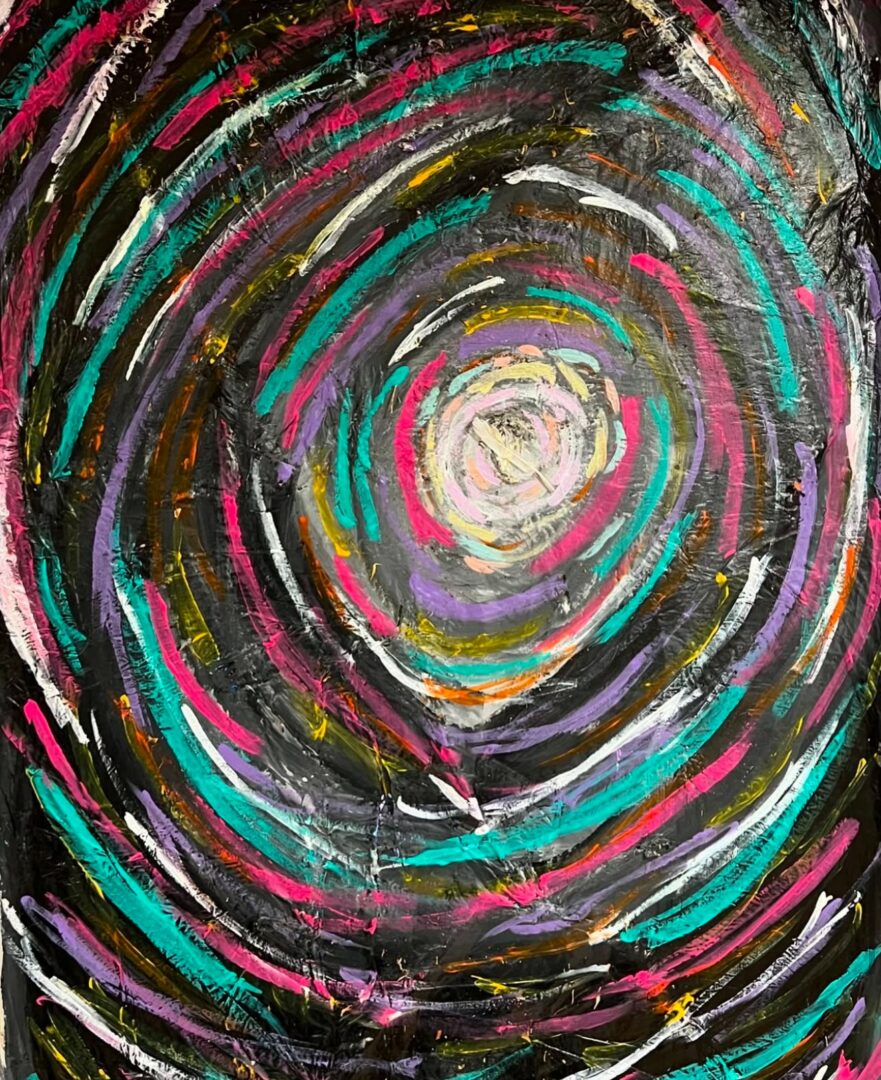
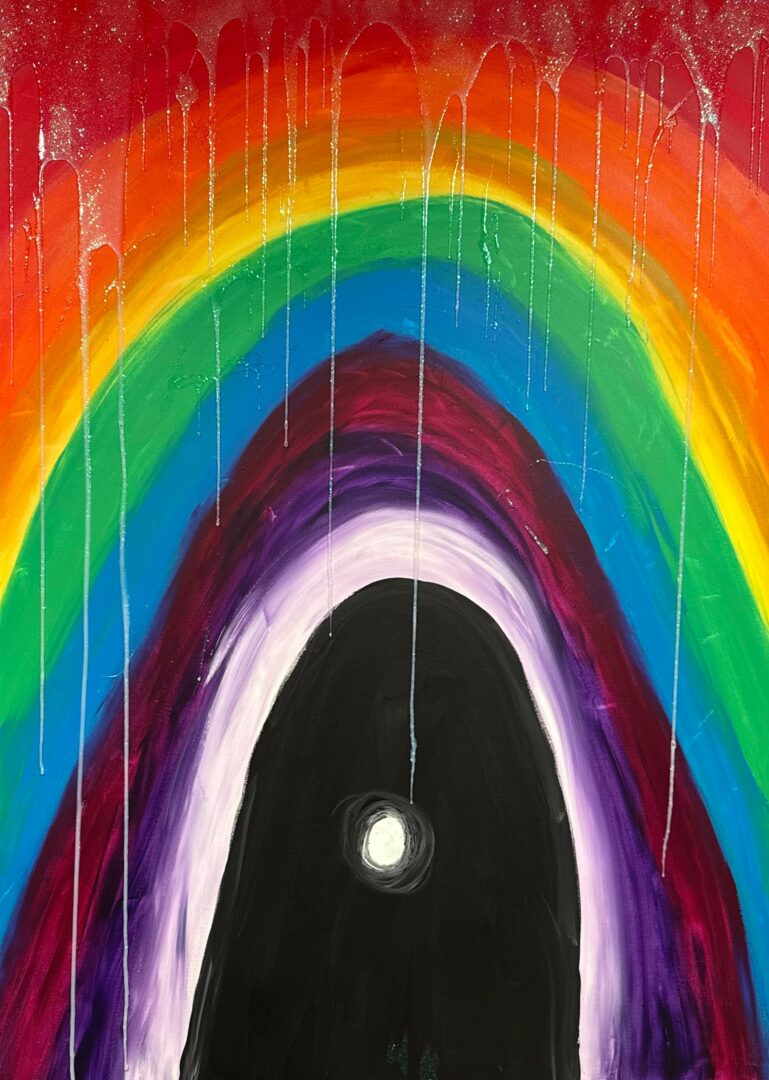
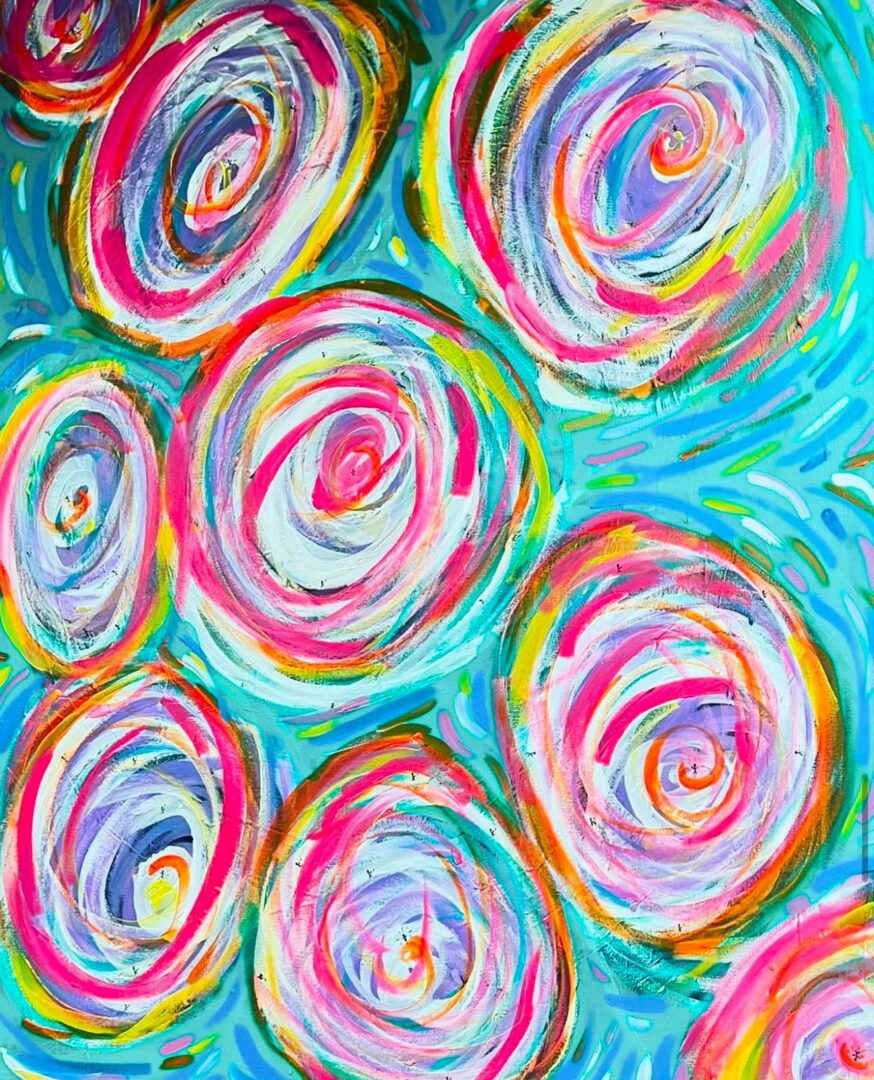
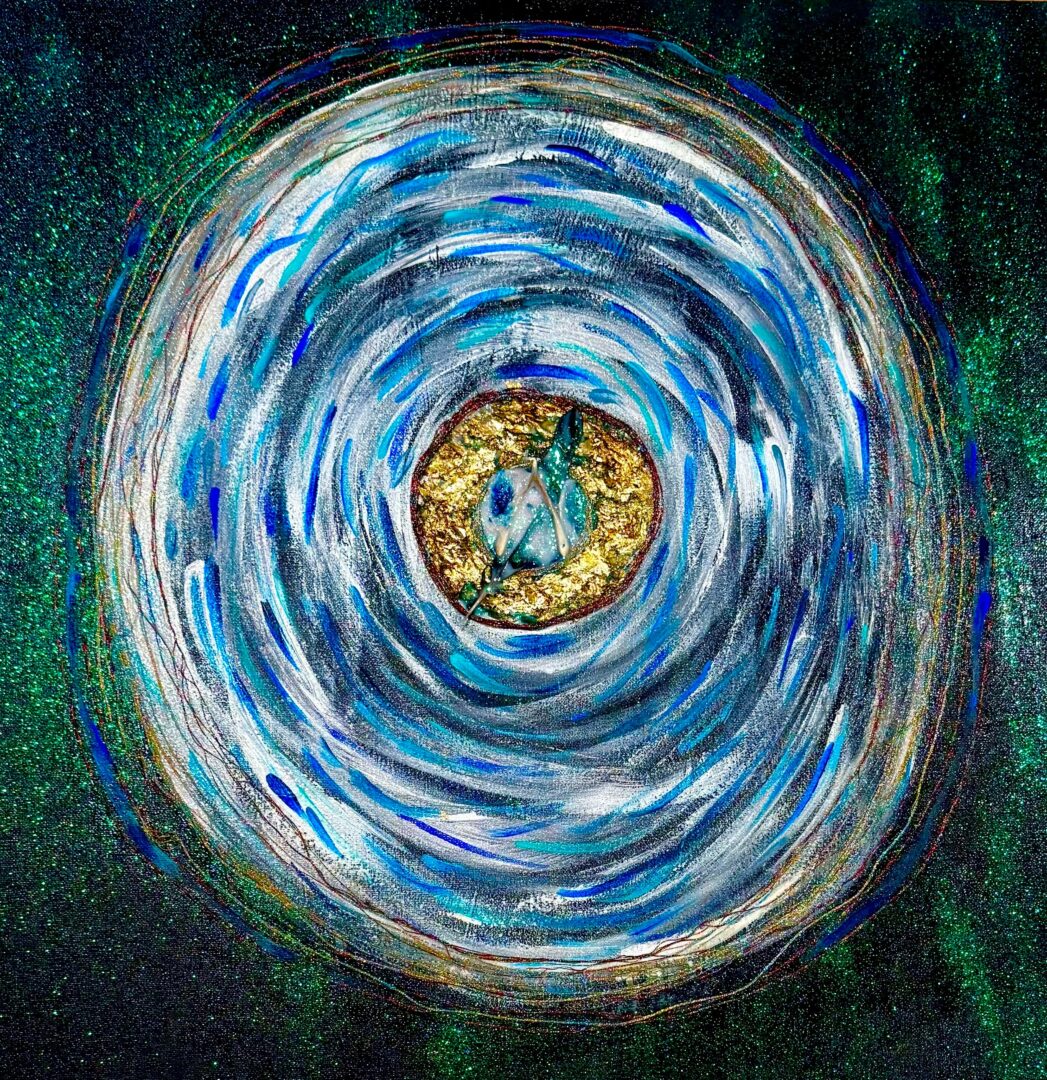
Image Credits
Megan Wooding Photography for the headhsot
so if you or someone you know deserves recognition please let us know here.

